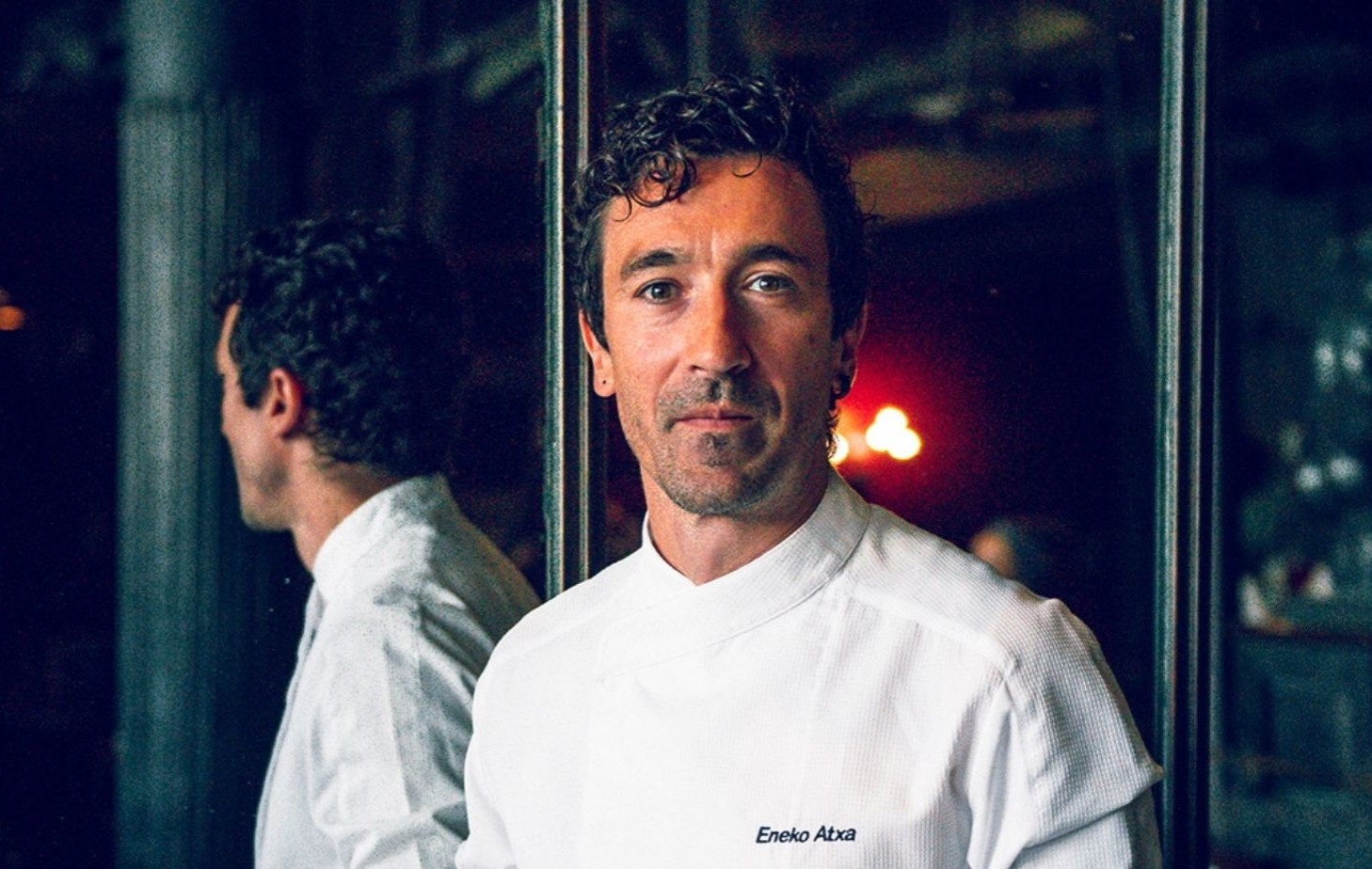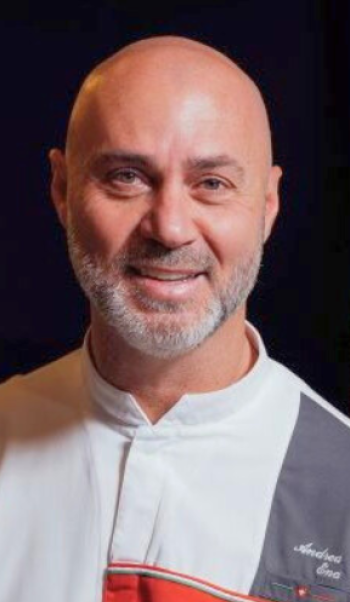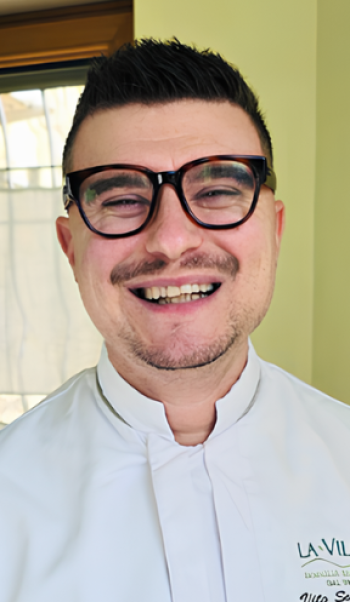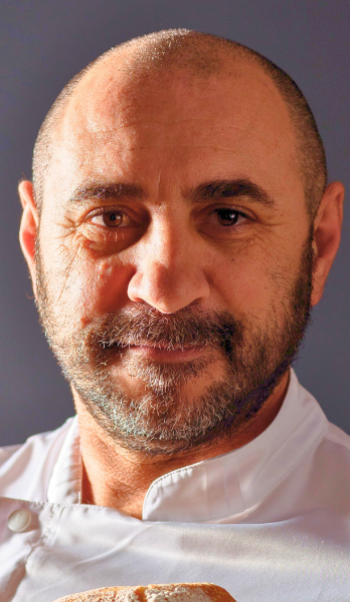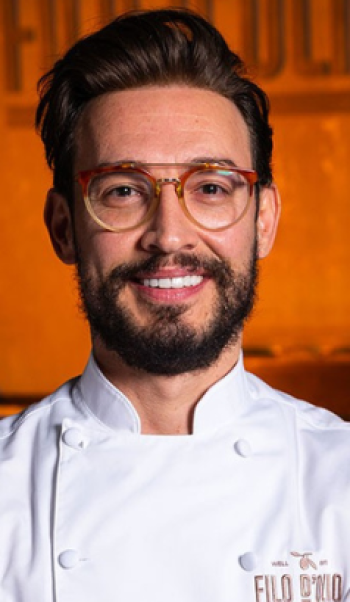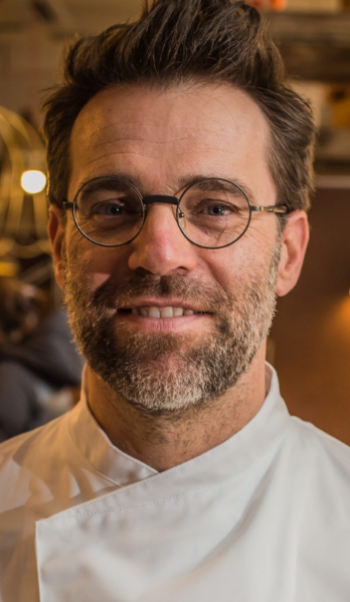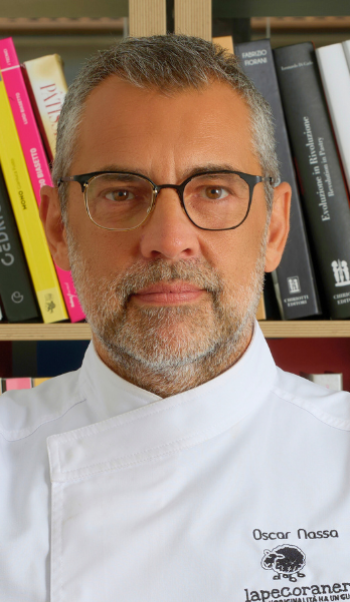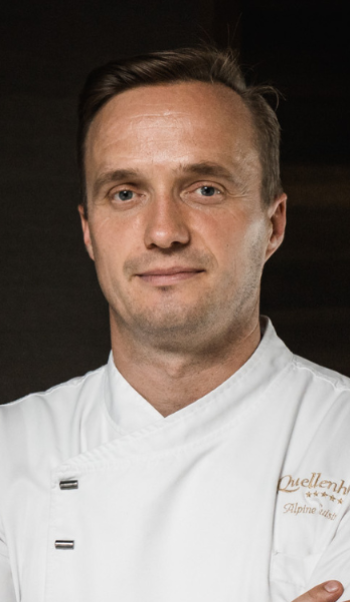Among the key figures of contemporary Spanish gastronomy, Eneko Atxa stands out as a proponent of sustainability, as evidenced by his awards such as World’s 50 Best Sustainable Chef 2014 and World’s Most Sustainable Restaurant 2018 for "Azurmendi". In the MICHELIN realm, Eneko has built an empire that stretches from the Iberian Peninsula to Tokyo.
Eneko Atxa was born in 1977 in Amorebieta, a small town in Biscay, into a humble family with a strong connection to food traditions. After gaining culinary experience at home with his mother and grandmother, he enrolled in the hotel school in Leioa. His cooking journey began at the restaurant "Baserri Maitea" and quickly took off with steady growth, leading him to prominent establishments, including the three-star Martin Berasategui restaurant in Lasarte in 1994.
By 2000, Atxa was already a chef at the grill temple "Etxebarri" in Atxondo, and later at "Andra Mari," where he believed he became a true "professional chef". His reputation continued to grow, and in 2002, he was named champion of young Spanish chefs. A pivotal moment for Eneko was undoubtedly his encounter with the Three MICHELIN-starred chef Yoshihiro Murata from "Kikunoi," a master of kaiseki cuisine, who taught him the significance of seasonality. The mentor's teachings proved essential for Atxa, prompting him to develop a green consciousness that values every ingredient. "The work of a chef starts long before the kitchen," was the lesson.
In 2005, he opened the restaurant that would define his career: "Azurmendi." The first MICHELIN Star came shortly after, followed by the second in 2010. The third Star wasn't far behind: by 2012, "Azurmendi" joined the ranks of the world's best restaurants, coinciding with the inauguration of the bioclimatic building surrounded by the greenery of Larrabetzu. This remarkable structure, constructed with recycled materials, features rainwater recycling facilities and a germplasm bank for biodiversity preservation. Renewable energy sources such as solar panels and a geothermal plant reduce carbon footprint, while waste returns to the fields as compost.
In 2014, Atxa was honored as the world's most sustainable chef by World’s 50 Best; a year later, the Leadership in Energy and Environmental Design (LEED) awarded him the silver certification for design and construction; finally, in 2018, "Azurmendi" was recognized as the world's most sustainable restaurant by World’s 50 Best. Sustainability at "Azurmendi" goes beyond on-site cultivation; Atxa himself emphasizes, "Nothing is less sustainable than self-sufficiency." He also doesn't adopt vegetarianism, which would mean forsaking conscientious artisans and the traditions that define their destinies. Instead, the chef has built a network of local producers over the years and supports them by sourcing a majority of his ingredients from them. His approach to sustainability extends culturally as well, celebrating intergenerational transmission and Basque flavor with a contemporary and avant-garde twist while contributing to the balance of local communities.
The purity of his dishes often reflects Japanese influence, occasionally incorporating certain techniques. The main element takes center stage, usually celebrated for its integrity, while sauces compete for attention, achieved through extreme concentration bordering on viscosity. Yet, the virtuosity lies in the balance between delicacy and power, freshness and reductions. "My cuisine is like us Basques," Atxa jests. "Strong on the outside and tender within."
Ultimately, Eneko's success deserves replication: in 2017, he opens "Eneko" in the former Azurmendi space, promptly receiving a MICHELIN Star. The trilogy continues with "Eneko Tokyo," and later "Eneko Lisboa," established in 2019 and awarded a Star in 2020—a year that also brings green Stars for both "Azurmendi" and the original "Eneko." In total, he garners Five MICHELIN Stars, coupled with a double recognition for sustainability. Yet, the story remains ongoing. The pandemic-induced suspension quickly passes: in 2021, he unveils "Basque" in Seville; in 2022, "NKO" opens in Bilbao, and "Basque," featuring nigiri and debokata, arrives in Madrid.
Cover Photo: @Sílviamartinez
